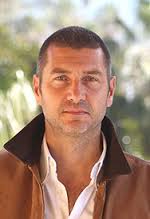
Abstract
Quantifying the net climate change impact of automotive material substitution is not a trivial task. It requires the assessment of the mass reduction potential of automotive materials, the greenhouse gas (GHG) emissions from their production and recycling, and their impact on GHG emissions from vehicle use. The model presented in this paper is based on life cycle assessment (LCA) and completely parameterized, i.e. its computational structure is separated from the required input data, which is not traditionally done in LCAs. The parameterization increases scientific rigor and transparency of the assessment methodology, facilitates sensitivity and uncertainty analysis of the results, and also makes it possible to compare different studies and explain their disparities. The state of the art of the modeling methodology is reviewed and advanced. Assessment of the GHG emission impacts of material recycling through consequential system expansion shows that our understanding of this issue is still incomplete. This is a critical knowledge gap since a case study shows that for materials like aluminum, the GHG emission impacts of material production and recycling are both of the same size as the use phase savings from vehicle mass reduction.
Biography
Roland Geyer is Assistant Professor at the Bren School of Environmental Science and Management, University of California at Santa Barbara. Prior to this appointment he held positions as research fellow at the Centre for Environmental Strategy, University of Surrey, UK, research associate at the Centre for the Management of Environmental Resources, INSEAD, France, and consultant in financial risk management for AMS (now part of CGI) in Germany. In his research he uses the approaches and methods of industrial ecology, such as life cycle assessment and material flow analysis, to quantify the environmental performance and improvement potential of production and consumption systems. Roland also combines these approaches with research methods from production and operations management in order to explore the relationship between the environmental and economic performance of such systems. He has a graduate degree in theoretical physics and a PhD in engineering.